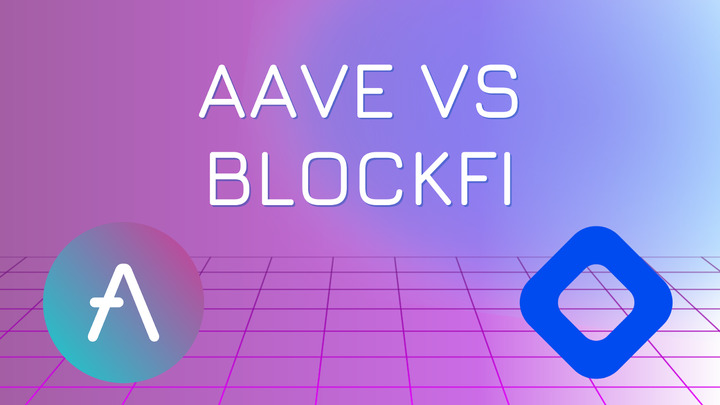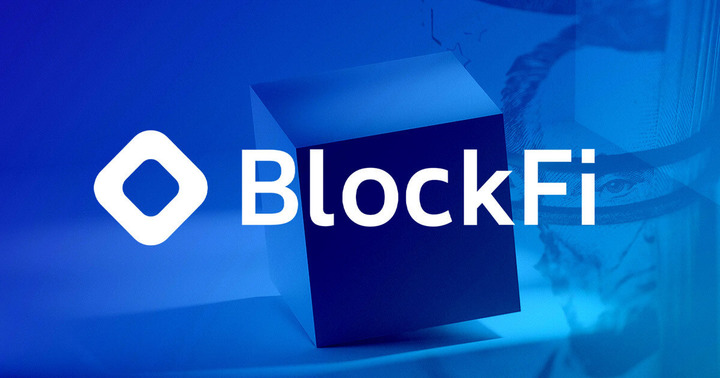
Unlike centralized lending platforms, decentralized money markets are the safest way to earn interest on digital assets. Crypto lending platforms allow you to lend your assets to borrowers in exchange for interest. So, instead of waiting for Bitcoin, Ethereum, or another cryptocurrency to rise, you can use a platform to earn interest on idle coins.
In this article, I decided to overview two popular crypto platforms, AAVE and BlockFi. Let’s compare the terms and conditions of both projects, rates, fees, supported cryptocurrencies, etc.
Table of Contents,
What is AAVE: Key Platform Features
Aave is a DeFi lending protocol that allows you to lend and borrow crypto assets using fixed and flexible interest rates.

The platform was created in 2017 by Finnish programmer Stani Kulechev. Until 2019, the platform was called ETHLend, but amid the bear market, the Protocol faced a lack of liquidity. Therefore, the creator had to rebrand. Let’s explore the main advantages of the Aave project.
Interaction model
At first, the platform used a P2P (peer-to-peer) model. However, it has several significant drawbacks: low liquidity and trading speed.
Therefore, Aave has recently been working on the P2C (peer-to-contract) model, which is used by most DeFi protocols. The advantage of this model is that there is no intermediary between the participants (substitutes and creditors).
Variable interest rates
The Protocol offers two types of interest rates for borrowers:
- Fixed rates (this type of rate is stable in the short term but can be rebalanced in response to significant market changes);
- Flexible rates (this rate is based on the current balance of demand and depends on specific market conditions).
Users can switch between fixed and flexible interest rates at any time using the control panel on the Aave website.
Flash loans
In 2020, Aave users could take out so-called flash loans. It was Aave who launched this unique feature. A flesh loan is a special kind of loan only available for DeFi protocols. Users can borrow unlimited amounts of capital from the DeFi system without collateral and credit checks.
Scenarios for using microloans:
- portfolio rebalancing through multiple operations within a single transaction, which optimizes commissions;
- arbitration;
- self-destruction;
- collateral swap.
The commission fee for such operations is 0.09% of the cost of borrowed funds which goes to creditors.
Aave Tokens
Ave Tokens can be divided into two types: aTokens and Debt Tokens. aTokens are standardized copies of users’ deposit or loan funds. Debt Tokens are issued when a debt is received and burned when it is returned, expressing the debt of the token holder.
What is BlockFi: Key Platform Features
BlockFi is a CeFi crypto platform that allows users to earn interest on their crypto assets, take loans in US dollars, use crypto as collateral, and trade various cryptocurrencies.

The company was founded in 2017 and is based in New Jersey. Its co-founders are Zach Prince and Flori Marquez. What interesting things can BlockFi offer?
Interaction model
BlockFi is a platform that acts as a creditor itself. That is one of the main differences from Aave, which works on the P2C principle.
No commission
One of the key aspects of the BlockFie crypto platform is that it can act as a commission-free exchange. The absence of a commission means you can keep all the profits from a successful transaction.
For comparison, popular crypto exchanges’ standard commission can start from 0.1% to 4%.
Compound interest
Interest rates are the main feature that Block Fay has become famous for. What is the meaning of compound interest?
For example, you deposited $100 into your account and earned $10 in interest. At the next interest accrual, not the initial $100 will be taken into account, but the received $110. Thus, you will receive a percentage of the income received.
DCA
There is a term in the crypto industry called DCA (Dollar-Cost Averaging). That is an investment strategy that involves the distribution of purchases at predetermined intervals. This approach eliminates the need to monitor the markets constantly.
The essence of DSA is as follows: the investor distributes the desired amount over a certain period and does not invest the entire amount in a lump sum. This strategy is especially suitable for novice investors and individuals.
You can learn more about DCA by clicking on this link.
Main Differences: AAVE Vs. BlockFi
Now that you have learned about the core advantages of two cool crypto platforms, look at the table, which provides information on the main differences between the Finnish Aave and the American BlockFi.
| Comparison item | Aave | BlockFi |
| Platforms supported | SaaS | Saas, iPhone, iPad, Android |
| Protocol | DeFi | CeFi |
| Total assets under management | $18,000,000,000USD | $15,000,000,000USD |
| Liquidity pools | Yes | No |
| Withdrawal Time | less than 1-hour | 24-hour |
| Regulators | Regulated in the UK by the Financial Conduct Authority | Regulated in the USA |
| Fiat currencies | – | USD |
| Cold storage | No | Yes |
| Two-factor authentication | No | Yes |
Final Words
Aave and BlockFiy are great crypto trading platforms that offer great rates, interesting features, and intuitive controls.
Aave is a crypto-oriented project that meets all the needs of the industry of the modern world. BlockFi is a great choice for those who don’t want to say no to fiat but don’t mind using crypto.
That is different from saying that one platform is better or worse than another. You need to understand what goals you want to achieve, find the right tools offered by a particular platform and become a full-fledged user of the platform for lending cryptocurrencies that you like.



